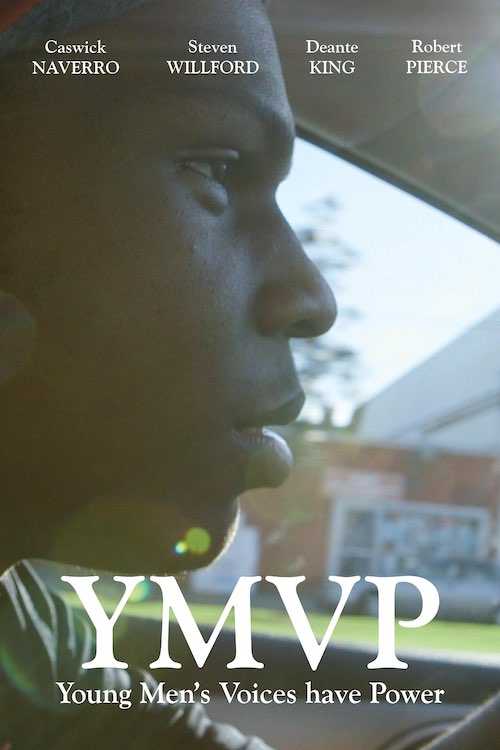UPDATE (October 26, 2020): Young Men’s Voices Have Power is available today on Amazon Prime Video! Click here to watch.
NEW ORLEANS (Jan. 4, 2019) – When Young Men’s Voices Have Power premieres Jan. 18 at the Ashe Powerhouse Theatre, 1731 Baronne Street, the four young, local film makers who shot and edited the documentary will be proof that the words in the title are true.
Caswick Naverro, Deante King, Steven Willford and Robert Pierce, all in their early 20s, said they entered the Young Men’s Voices Have Power (YMVP) internship program at Camp Restore to learn new skills, but they had no idea they would also learn how to be better men.
Camp Restore, which is housed on the sprawling Prince of Peace Lutheran Church complex in New Orleans East, has operated a volunteer-based rebuilding program for more than a decade. Through their work, leaders of the program saw a need to become more youth-informed as an organization while building new communication capabilities that would make a positive impact in the New Orleans nonprofit community.
“We were primarily interested in the stories and viewpoints of young men of color in New Orleans who were not in school or fully employed at the time they applied,” said Camp Restore Deputy Director Kurt Jostes. “We wanted to provide a learning opportunity to talented young men who had perhaps been overlooked, let down by, or otherwise disconnected from the traditional pathways to academic and career success.”
The program was funded by a grant from W.K. Kellogg Foundation, which “is committed to community-led solutions that tackle the complex and inequitable barriers faced by young men and boys of color that begin before birth and follow them throughout their lives. The legacy of structural racism has created long-lasting barriers to their success. Addressing and resolving these inequities has tremendous potential to strengthen economies, create jobs, revive neighborhoods and broaden opportunities for all children, families and communities to thrive.“
The first cohort, which ran in 2015-2016, included Naverro and Willford, who took turns photographing and videotaping people, places and each other. Andre Lambertson and David Hunt, provided technical instruction, but also taught them how to speak to the camera about the realities of their lives. They learned how to talk about their experiences and work toward healing the trauma in their lives.
For instance, when Naverro applied to the program he was just out of the hospital recovering from multiple gunshot wounds. It seemed like a program that might keep him out of trouble, although past “programs” had failed, he said.
“I never thought I would do anything like this,” Naverro said. “Not many dudes get this opportunity.”

The second cohort, King and Pierce, had the benefit of the expertise of Lambertson and Hunt, but also the experience of their predecessors in the training program.
Each cohort interviewed family, friends and strangers as they taped more than 80 hours of video and shot more than 17,000 photographs. The men had to work together to edit the documentary: four distinct perspectives melded into a single piece.
“We had to figure out how to take ourselves out of the equation,” said Willford. “We had to see what the world needs to fix and use the pieces that show that.”
The young men are unanimous in their praise for the program and what they have learned. King said he has learned new skills and can see doing more with it. Willford has used his photography skills and new-found confidence to start a free-lance business, and they all plan to help “little brothers” in their communities by mentoring them in how to deal with their lives.
When they sit with friends, family and invited guests to watch the premiere of the documentary, there may be a few cases of jitters, but Naverro, King, Willford and Pierce said they will be proud of their new-found voices that carry the power to change the world.
